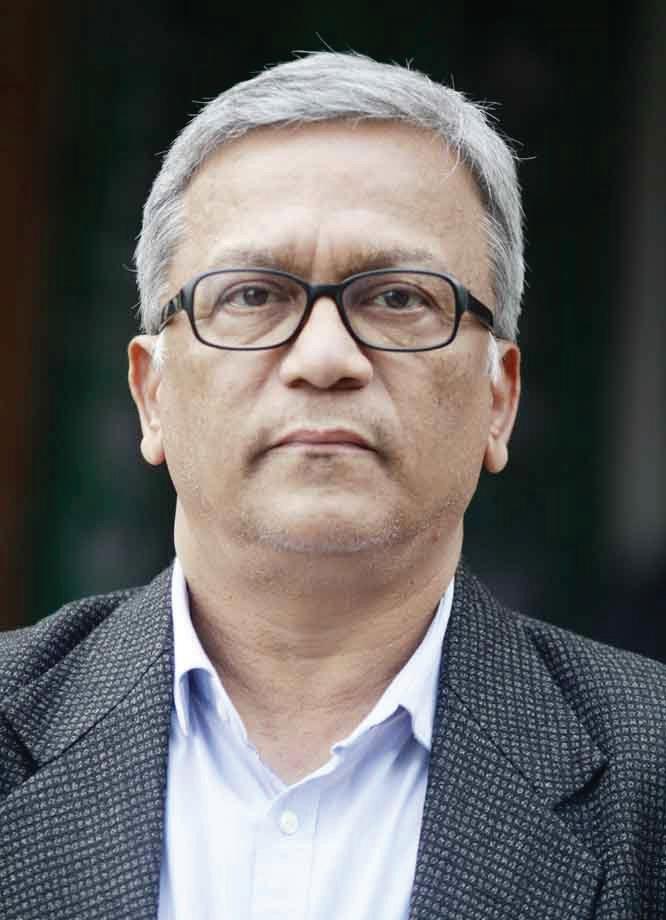INDIA NEWS
Dec 16-31, 2020 - Vol 1, Issue 12
ENTERTAINMENT
Australian link to Bollywood’s depiction of new age Indian women By Priyam Sinha Bollywood established its place as a dominant film industry in the 1990s. This period witnessed commercialisation of song and dance elements, a brewing fan-base amidst its diasporic audiences, improvised cinematographic techniques and grandiosity of settings while portraying the life of anon resident Indian (NRI). Thus, the display of these foreign destinations added to the popularisation of Bollywood cinema abroad ever since including in Australia. The 1990s also earmarked post-economic liberalisation, which influenced the socio–political environment of the Indian cinemas, advocated the ideologies of gendered dissent and led to the relaxation of censorship rules whilst portraying sexuality. Among the usual trends of showcasing foreign destinations Australia emerged as a space of sexual liberation, urban cultural milieu, and families in the 21st century. The notion of a diaspora in Bollywood cinema evokes newer perceptions of gendered performativity and romance. Through the extravaganza of exotic destinations, melodrama and action infused in enacting familial relations, the diaspora
plays an integral role in enticing its global spectators. It not only caters to the male fetishes and voyeuristic pleasures but also showcased women being flamboyant, promiscuous, and self–reliant. Salaam Namaste (2005), Heyy Baby (2007), Chak De! India (2007) and Bachna Ae Haseeno (2005) are some of the popular films whose narratives revolved around life of Indians in Australia. Thereafter, Australia established its place as a favoured destination for Indians to settle and set forth the narratives around retaining the Indian cultural values although being based abroad. The strong connection between India–Australia were established in the display of its cultural, aesthetic and materialistic culture. The close association and transnational connection between the two set forth through its historical connections, common ideological frameworks and political climate and migratory ties also added to the popularity of Bollywood cinema amongst the diaspora in Australia. Sports being one such tie, set forth the cultural and diasporic connect between the two countries in the particular hockey world cup match in Melbourne in Chak De! The women’s hockey team was belittled and shunned for
pursuing a “manly” game over performing domestic chores. The match at Melbourne symbolised the dismantling of patriarchy and cultural stereotypes of women where years of ridicule and value judgment portraying woman predominantly as a wife, a daughter or a daughter–in–law was very effectively discarded in the portrayal of players coming from different parts of India. On the other hand, the stigma related to live–in relationships and unmarried pregnancy was enacted in Salaam Namaste that introduced novelty in cinematic trends of Bollywood cinema. The narrative of Heyy Baby too touched upon how Sydney could be a destination for three Casanovas, a notion stereotyped within the Indian masculinity. On similar lines, Bachna Ae Haseeno too addressed how a casanova finally mended his ways after having betrayed the trust of Indian women who dreamt of “settling down” with him and starting a family. After years of running away from commitment the male protagonist realised his love for Deepika Padukone, playing the role of a part time management student and cab driver. Sydney thus became the harbinger of a realisation of a woman juggling multiple roles
and instilling a sense of guilt of breaching the trust of all those whom he left behind in India. Although these films tried to ape the Indian cultural milieu even in Australia the degree of liberation from the traditional sanctions made Australia unique in its representation. Amidst the picturesque beaches, fetishisation of the woman’s body; the films also demonstrated that the Indian woman was no more gullible, docile, and subservient. Instead, she too gazed, objectified and fetishized the male body and pursued her goals independent of her familial expectations. The role of diaspora, in this case Australia becomes an interesting point of contestation for having set forth a broader debate on how diaspora is a liberating yet conservative. Then diaspora tapped upon the Indian sentimentality of urban anxieties, fear and escapist fantasies. Further, the narratives in these movies exhibited the NRI culture, their alleged superiority and sexual agency and alienation yet attachment towards the melodrama of Indian households. In other words, it reinforced the old adage, you can take an Indian out of India but never India out of an Indian. However, it must be emphasised that the movies championed narratives that were
Priyam Sinha offbeat, in a significant departure from the tradition stereotypical construct of Indian values, gender roles and gender parity. Although acknowledgement for performing familial roles hold relevance within these narratives but it made the audience mindful of how women are more than just being fetishised or adhering to societal standards to being a chaste and a sacrificial mother. The female protagonists eulogised the avenging woman discourse by eulogising the emerging “new age woman” of the 21st century who is now offering an alternative image of an Indian womendivorced from the stereotypical image that has been reinforced for centuries. Ms Priyam Sinha is a doctoral student at the National University of Singapore.
Bollywood drugs probe: 2 NCB officials Kriti Sanon quarantined after testing Covid positive suspended Mumbai, Dec 9 (IANS): Bollywood actress Kriti Sanon on December 9 confirmed reports claiming that she has tested positive for Covid-19. The actress is currently quarantined.
Mumbai, Dec 3 (IANS): In a big embarrassment, the Narcotics Control Bureau (NCB) has suspended two officials of its Mumbai Zonal Unit for their alleged suspicious role which enabled two persons in the ongoing Bollywood-drugs mafia investigation get relief, official sources said here on December 3.
Kriti issued a statement on her verified Instagram account to share her health update and also asked fans not to worry as she is “feeling fine”. The statement reads: “I would like to inform everyone that I have tested positive for Covid-19. There is absolutely nothing to worry as I am feeling fine and have quarantined myself as per BMC and my doctor’s advice. So I am gonna ride this tide, rest it out and resume work soon. Till then, I am reading all the warm wishes and they seem to be working. Be safe guys, the pandemic hasn’t gone yet.” Kriti has just returned from Chandigarh where she was
Bollywood actress Kriti Sanon shooting with actor Rajkummar Rao for Abhishek Jain’s upcoming comedy “Second Innings”. The film also stars Paresh Rawal and Dimple Kapadia, and is scheduled to release next year. Kriti will also feature alongside Akshay Kumar in the action film “Bachchan Pandey”, and will be seen in Laxman Utekar’s “Mimi” where she plays the role of a surrogate mother.
Rahul Roy discharged from hospital, will undergo speech therapy Mumbai, Dec 9 (IANS): Bollywood actor Rahul Roy, who was undergoing treatment at Nanavati Hospital after suffering a brain stroke, has been discharged. The news of the actor’s discharge was confirmed by filmmaker Nitin Kumar Gupta. Roy was shooting for Gupta’s film “LAC: Live The Battle” in Kargil when he suffered
www.indianews.com.au
the stroke on November 26. “The doctors were ready to release him on December 7, but paperwork took time. His sister took him home the following day,” Gupta told Mumbai Mirror. The director further informed that the actor would be undergoing speech therapy in order to regain normal speech.
The role of the two investigating officials - whose identities were not disclosed - came under a cloud after accused Harsh Limbachiya and suspect Karishma Prakash got bail and interim bail, respectively, in November, an official requesting anonymity told IANS. Limbachiya is the husband of high-profile television comedian Bharti Singh while Karishma Prakash is the manager of leading Bollywood actress Deepika Padukone. Some other officials are likely to be under the NCB scanner for their questionable lapses in
the matter that has shaken up the organisation which has been probing the high-profile cases for the past four months.
Both - Limbachiya and Karishma Prakash - had been raided by NCB teams in November and certain quantities of drugs recovered in the actions. While Bharti Singh and Limbachiya were arrested and later got bail, Karishma Prakash had ignored the NCB summons to join the probe and later secured an interim bail - and in both the developments, the alleged role of the two IOs is now under the scanner. The NCB move follows the preliminary report of an internal probe ordered by the Zonal Director Sameer Wankhede, and the suspensions precede a full departmental enquiry in which the possible involvement of some others, including lawyers, could also come up, indicated the official. In a serious transgression, the two officials, along with a lawyer,
did not appear during scheduled court hearings in the two cases which enabled them to get bail. Following a tip-off from an arrested drug peddler, the NCB had raided Karishma Prakash when she was away from her home, and later a case was lodged along with summons issued to her. While she ignored the summons, she also applied for an anticipatory bail which she got though the court directed her to appear before the NCB, which she complied with. The NCB sought custodial interrogation for her as she was not cooperating in the probe and during the final hearing of her anticipatory bail plea, the official and lawyer did not appear in the court, after which the court granted her bail plea. Bharti Singh and Limbachiya were arrested after raids at their homes and office on November 22 and sent to judicial custody for 13 days each.
TV actress found dead in Chennai hotel room Chennai, Dec 9 (IANS): Television actress and host VJ Chitra, best known for starring in the Tamil show Pandian Stores, was reportedly found dead at a hotel room in Chennai’s Nazrathpet hotel on December 9. She was 29 and is suspected to have died by suicide. According to the police, she had
facebook.com/indianewsaustralia
checked into her room around 1 am on December 9 after completing a shoot. “The hotel manager called the police helpline number 100 about 3.30 a.m on December 9. We are currently investigating the cause of her death,” a police official from Nazrathpet station told TNM.
Just few hours before her death, Chitra had shared pictures of herself from a photo shoot on her Instagram page. In addition to many fans, filmmaker Lokesh has left a heartbroken emoji in the comments section.
31




















